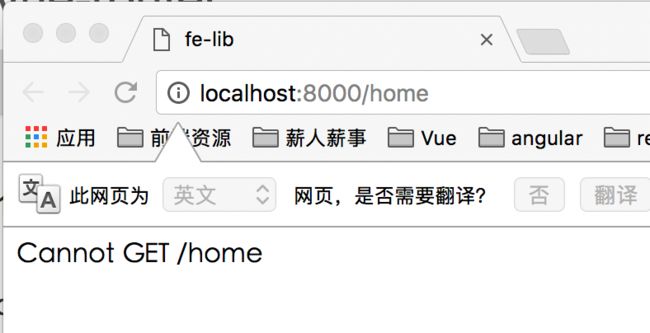- 2025 西电软工数据结构机考 Tip (By Felix)
Felix_1215
数据结构XDOJ算法
2025/01/0718:30-20:30XDOJ五道题三道题即为满分近两年没有考过图和字符串,链表和树为重点内容(必考重点准备)2024年五道题:题目内容类型得分未知C语言未参加给出后序和中序遍历建树树未参加堆排序输出过程量排序未参加哈希表查找未参加未知链表未参加2025年五道题:题目内容类型得分卷积运算C语言(函数题)0/100循环单链表模拟队列实现入队和出队函数链表,队列(函数题)100/1
- 短期气候Python绘图——EOF(经验正交函数分解)大气环流基本状况
安载寿
python开发语言
一、要求掌握大气环流分型的基本方法--EOF(经验正交函数分解)大气环流基本状况;熟悉EOF方法和程序的应用,气象绘图;二、资料说明NCEP/NCAR1948-2008年(61年)的500百帕月平均高度场资料,资料范围为(900S-900N,00-3600E),网格距为2.50×2.50,纬向格点数为144,经向格点数为73,资料为GRD格式,资料从南到北、自西向东排列,每月为一个记录,按年逐月排
- 中等难度——python实现电子宠物和截图工具
myzzb
python图像处理前端宠物
importio#文件处理importnt#windowsnt库直接获取对应的磁盘空间importtime#时间importzlib#加解密importctypes#调用importstruct#处理字节二进制importbase64#编解码importthreading#线程importtkinterastk#tkfromdatetimeimportdatetime#时间fromtkinteri
- 交换机和路由器的区别
毛毛的毛毛
智能路由器网络
交换机(Switch)和路由器(Router)都是网络中常见的设备,它们各自有不同的功能和作用。以下是交换机和路由器之间的主要区别:1.工作层级交换机(Switch):主要工作在数据链路层(OSI模型的第2层),也可以工作在网络层(第3层),这种交换机称为“三层交换机”。交换机通过MAC地址来识别和转发数据帧,它根据设备的硬件地址来决定将数据发送到哪个端口。路由器(Router):主要工作在网络层
- HDFS 在上传文件的时候,如果其中一个 DataNode 突然挂掉了怎么办? 思维导图 代码示例(java 架构)
用心去追梦
hdfsjava架构
当在HDFS中上传文件时,如果其中一个DataNode突然挂掉,HDFS有内置的机制来确保数据的完整性和可靠性。以下是详细的处理流程、Java架构代码示例以及创建思维导图的建议。HDFS上传文件时遇到DataNode故障的处理1.检测DataNode故障心跳机制:每个DataNode定期向NameNode发送心跳信号。如果NameNode在一段时间内没有收到某个DataNode的心跳,它会将该节点
- 电商项目-基于ElasticSearch实现商品搜索功能(三)
kong7906928
项目功能Java框架elasticsearch电商项目商品搜索
本系列文章主要介绍基于SpringDataElasticsearch实现商品搜索的后端代码,介绍代码逻辑和代码实现。主要实现功能:根据搜索关键字查询、条件筛选、规格过滤、价格区间搜索、搜索查询分页、搜索查询排序、高亮查询。主要应用技术:canal,Eureka,微服务架构(MicroservicesArchitecture),SpringDataElasticsearch一、搜索分页1分页分析基于
- 神经架构搜索在大模型效率优化中的应用
AI大模型应用之禅
计算机软件编程原理与应用实践javapythonjavascriptkotlingolang架构人工智能
神经架构搜索,大模型,效率优化,自动机器学习,深度学习1.背景介绍近年来,深度学习模型取得了令人瞩目的成就,在图像识别、自然语言处理、语音识别等领域展现出强大的能力。然而,随着模型规模的不断扩大,训练和部署这些大模型也带来了巨大的挑战。计算资源消耗巨大:大模型的训练需要大量的计算资源,例如高性能GPU和TPU,这导致训练成本高昂,难以普及。内存占用量大:大模型的参数量庞大,需要大量的内存进行存储和
- Python爬虫:从入门到实践
来恩1003
Python爬虫python爬虫开发语言
Python爬虫学习资料Python爬虫学习资料Python爬虫学习资料在当今数字化信息爆炸的时代,数据已成为企业和个人发展的重要资产。Python爬虫作为一种高效获取网络数据的工具,正逐渐被广大开发者所熟知和应用。无论是市场调研、学术研究,还是数据分析,Python爬虫都能发挥巨大作用。本文将带你从基础概念出发,逐步深入到爬虫的实战应用,助你掌握这一强大的数据获取技能。一、爬虫基础:开启数据获取
- 探索微信小程序开发之旅
来恩1003
微信小程序微信小程序小程序
微信小程序学习资料微信小程序学习资料微信小程序学习资料在移动互联网蓬勃发展的当下,微信小程序以其无需下载安装、触手可及的特性,成为众多开发者和企业的热门选择。无论是为了拓展业务渠道、提升用户体验,还是追求技术创新,学习微信小程序开发都能为你打开一扇充满机遇的大门。接下来,让我们一同踏上微信小程序的学习征程。一、基础搭建:开启小程序开发之门开发工具准备:微信官方提供了功能强大且易用的开发工具——微信
- 中间件以及主流中间件产品:IBM MQSeries和BEA Tuxedo介绍
CoderIsArt
架构设计研究中间件
中间件简介中间件(Middleware)是一类位于操作系统和应用程序之间的软件层,负责提供通用服务,简化分布式系统开发和集成。中间件的目标是屏蔽底层操作系统和网络的复杂性,为应用程序提供统一的接口和支持。中间件的功能消息传递:提供可靠的消息队列服务,支持异步通信。事务管理:支持分布式事务管理,保证数据一致性。服务集成:连接不同的应用程序和系统,促进跨平台和多语言环境下的协作。负载均衡和高可用性:确
- Data Mesh:《华为数据之道》中的数据治理和**Data Mesh**架构的理念差异
PersistDZ
数据架构华为架构datamesh数据之道
《华为数据之道》中的数据治理和DataMesh架构的理念有一定的差异,尽管两者都强调如何有效管理和利用数据,但它们的侧重点、方法论和适用场景有所不同。以下是它们的异同、优劣势及适用场景的详细比较:1.数据治理与DataMesh的定义数据治理(《华为数据之道》中的数据治理)数据治理是一个全面的过程,旨在通过规范化、标准化、系统化的数据管理,使数据成为企业的核心资产。书中提出了数据治理的五化模型(标准
- protobuf: 通讯录2.4
yiren_liusong
笔记序列化和反序列化计算机网络protobuf
1.proto36.map语法⽀持创建⼀个关联映射字段,也就是可以使⽤?map?类型去声明字段类型,格式为:mapmap_field=N;要注意的是:key_type是除了float和bytes类型以外的任意标量类型。value_type可以是任意类型。map字段不可以⽤repeated修饰map中存⼊的元素是⽆序的2.通讯录2.4:用map类型定义Remark(备注信息)contacts.pro
- 【HarmonyOS NEXT应用开发】案例65:Fabric 自定义组件开发指导
青少年编程作品集
c语言c++开发语言华为harmonyos华为云华为od
1.编写RN调用Fabric组件的代码编写MarqueeViewNativeComponent.tsx,注意,如果要使用Codegen,文件必须以NativeComponent命名。在文件中使用codegenNativeComponent创建MarqueeView组件,其中MarqueeViewProps里声明了src属性和onStop事件:typeOnStopEventData=Readonly
- 金融支付行业技术侧重点
编程一生
金融
1.合规问题第三方支付系统必须符合《非银行支付机构监督管理条例》的规定。其中,要尤其注意第18条。第十八条非银行支付机构应当具备必要和独立的业务系统、设施和技术,按照强制性国家标准以及相关网络、数据安全管理要求,确保支付业务处理的及时性、准确性和支付业务的连续性、安全性、可溯源性。非银行支付机构的业务系统及其备份应当存放在境内。我主要解释里面提到的两点:第一个是部署合规性,一个是跨国业务的合规性。
- 有用过kafka的延迟队列功能的人吗
xiamu_CDA
kafka分布式
有用过Kafka的延迟队列功能的人吗?在当今的数据处理和消息传递领域,ApacheKafka已经成为了一个不可或缺的工具。它以其高吞吐量、低延迟和可扩展性而闻名。然而,随着应用场景的多样化,Kafka的延迟队列功能逐渐进入了人们的视野。你有没有想过,在处理复杂业务逻辑时,Kafka的延迟队列功能能带来哪些优势?本文将深入探讨这一话题,并分享一些实际应用中的经验和最佳实践。什么是Kafka的延迟队列
- 一些网络问题汇总
winzap
技术心得网络windowsinternet服务器路由器dns服务器
IP与MAC绑定的难题问:我的计算机原来采用公网固定IP地址。为了避免被他人盗用,使用“arp-sipmac”命令对MAC地址和IP地址进行了绑定。后来,由于某种原因,又使用“arp-dipmac”命令取消了绑定。然而,奇怪的是,取消绑定后,在其他计算机上仍然不能使用该IP地址,而只能在我自己的计算机上使用。需要说明的是,我的计算机并不是代理服务器。答:虽然在TCP/IP网络中,计算机往往需要设置
- Harmony Next开发手册:学写一个NAPI子系统
小小煤球
HarmonyOS鸿蒙开发OpenHarmony鸿蒙harmonyos前端华为鸿蒙系统开发语言android
此篇文章,我们主要是熟悉下NAPI框架,并一起写一个支持NAPI的子系统,这样以后当我们想在hap应用里加自己功能的时候就可以方便的添加。NAPI框架简介NAPI(NativeAPI)组件是一套对外接口基于Node.jsN-API规范开发的原生模块扩展开发框架。类似于Android的JNI,NAPI框架实现了应用层ts/ets/js语言编写的代码和OpenHarmony的native代码(c/c+
- C++单例模式实现
huaichekk
c++单例模式开发语言
单例模式(SingletonPattern)是软件设计模式中的一种,用于确保一个类只有一个实例,并提供一个全局访问点来获取这个实例。一、初始版本(手动创建释放)一个类只有一个实例的实现方法:隐藏构造函数,是外界无法创造对象通过类静态成员函数getInstance返回静态局部对象指针(指向堆空间的指针数据成员),确保对象生命周期和程序一致,并且在程序中唯一使用destory释放堆空间#include
- CDP中的Hive3之Hive Metastore(HMS)
对许
#Hive#Sparkhivecdp
CDP中的Hive3之HiveMetastore(HMS)1、CDP中的HMS2、HMS表的存储(转换)3、HWC授权1、CDP中的HMSCDP中的HiveMetastore(HMS)是一种服务,用于在后端RDBMS(例如MySQL或PostgreSQL)中存储与ApacheHive和其他服务相关的元数据。Impala、Spark、Hive和其他服务共享元存储。与HMS的连接包括HiveServe
- 卷积神经网络(CNN):深度学习中的核心模型
任义礼智信
深度学习cnn人工智能
引言卷积神经网络(ConvolutionalNeuralNetworks,CNNs)是深度学习领域的一种重要模型,广泛应用于图像处理、计算机视觉、自然语言处理等多个领域。CNN凭借其卓越的特征提取能力和参数共享机制,已成为计算机视觉任务中最主流的算法之一。本文将深入探讨CNN的基本原理、结构组件、应用场景及其发展方向。CNN的基本原理CNN是一种特殊的前馈神经网络(FeedforwardNeura
- 时间是什么
EdmundXjs
奇思妙想创业创新学习方法职场和发展
国际计量单位时间的方法目前是采用原子钟原理,1秒等于铯133原子基态两个超精细能级之间跃迁对应辐射的9192631770个周期所持续的时长。物理学上对时间的定义是:时间是物质的永恒运动、变化的持续性、顺序性的表现,包含时刻和时段两个概念。地球所处的宇宙,或许只是别人播放的一段电影,它是可以被暂停、跳转甚至直接关闭。暂停,作为宇宙内的一份子是无法感知到的,因为所能感知的一切都没有发生变化。跳转,或
- Java 8 Stream filter流式过滤器详解通关
大名顶顶
Java核心教程专栏javajava实战编程软件开发程序设计程序开发计算机
引言Java8的引入给我们带来了强大的StreamAPI,它彻底改变了我们处理集合数据的方式。在日常开发中,我们经常需要对数据进行筛选、过滤和转换,而Stream的filter方法无疑是实现这些操作的绝佳利器。在本文中,我们将用生动的讲解与实际代码示例,带你全面掌握Stream的filter方法。以下是本文的精彩亮点:✨高效筛选:如何使用filter方法轻松筛选符合条件的数据。精准查找:结合fin
- ARM体系与架构
吃饱了好撑
arm开发架构
ARM体系与架构硬件基础ARM处理器什么是哈佛结构和冯诺依曼结构?冯诺依曼结构采用指令和数据统一编址,使用同条总线传输,CPU读取指令和数据的操作无法重叠。哈佛结构采用指令和数据独立编址,使用两条独立的总线传输,CPU读取指令和数据的操作可以重叠。利弊冯诺依曼结构主要用于通用计算机领域,需要对存储器中的代码和数据频繁的进行修改,统一编址有利于节约资源。哈佛结构主要用于嵌入式计算机,程序固化在硬件中
- pytest测试框架多系统并存+yml编写测试用例实现
weixin_44872675
pytestpytest
实现一个支持多系统共存的接口测试框架,同时结合YML文件编写测试用例,需要考虑以下关键点:每个系统的独立性:各系统可以有独立的配置(如conftest.py、环境变量等)。测试用例按系统和模块组织。统一管理和执行:测试用例可以按系统、模块或标签(如优先级)动态选择执行。支持共享框架的核心逻辑(如用例执行、结果收集、上下文管理)。YML用例兼容性:每个系统的YML用例格式一致,支持用例依赖、动态参数
- android直播类app开发
weixin_44693887
ffmpegandroidandroidstudio
在移动互联网时代,直播成了一种极受欢迎的互动形式,不管是娱乐、教育、还是商业等领域都有应用。而Android直播应用则是近年来备受关注的一个领域。本文将从原理和详细介绍两个方面,对Android直播类应用开发进行探讨。一、Android直播类应用的原理Android直播类应用的原理就是将视频通过摄像头采集,经过压缩编码后通过网络传输至服务器,再由服务器推流至直播平台,最终用户可以通过直播平台进行观
- 【机器学习:十五、神经网络的编译和训练】
KeyPan
机器学习机器学习神经网络人工智能深度学习pytorchubuntulinux
1.TensorFlow实现代码TensorFlow是深度学习中最为广泛使用的框架之一,提供了灵活的接口来构建、编译和训练神经网络。以下是实现神经网络的一个完整代码示例,以“手写数字识别”为例:importtensorflowastffromtensorflow.kerasimportlayers,models#加载MNIST数据集(x_train,y_train),(x_test,y_test)
- 深度学习图像算法中的网络架构:Backbone、Neck 和 Head 详解
肥猪猪爸
#深度学习深度学习算法人工智能数据结构神经网络计算机视觉机器学习
深度学习已经成为图像识别领域的核心技术,特别是在目标检测、图像分割等任务中,深度神经网络的应用取得了显著进展。在这些任务的网络架构中,通常可以分为三个主要部分:Backbone、Neck和Head。这些部分在整个网络中扮演着至关重要的角色,它们各自处理不同的任务,从特征提取到最终的预测输出,形成了一个完整的图像处理流程。本文将详细介绍这三部分的作用以及它们在目标检测和图像分割中的应用,帮助大家更好
- i2ctransfer
炭烤毛蛋
---Android-------Linux----#Toolsarm开发i2c-tools
i2ctransferi2ctransfer是一个在Linux系统上通过I2C总线与设备通信的工具,它通常用于执行低级的I2C数据传输。这个命令允许用户通过I2C总线进行读取和写入操作。它是i2c-tools包的一部分,通常用于调试和与I2C设备进行交互。提示:i2c通信失败可以参考《rk3568I2C》。文章目录i2ctransfer前期准备1.i2ctransfer简述1.1`i2ctrans
- ARM架构与嵌入式系统开发全流程教程
夏勇兴
本文还有配套的精品资源,点击获取简介:ARM架构因其低功耗、高性能和灵活性而广泛应用于嵌入式系统、移动设备等多种计算平台。本教程将深入介绍ARM处理器的类型,包括Cortex系列、ARMv8-A架构,以及Thumb和Thumb-2指令集。同时,涵盖ARM编程基础知识,包括汇编语言、C/C++编程和软件开发工具链,以及嵌入式系统中的应用和入门级教程,帮助初学者逐步掌握ARM处理器的工作原理和嵌入式系
- 自动化构建艺术项目:Makefile实战指南
大熊小清新
本文还有配套的精品资源,点击获取简介:在IT行业中,"artc"可能是一个结合艺术与技术的项目,而"Makefile"作为Unix/Linux环境下的自动化构建工具,对于简化代码编译与链接过程至关重要。本文将解析Makefile的基本结构,包括目标、依赖和命令,并通过实例展示如何构建艺术项目。此外,还会讨论Makefile在艺术项目资源处理中的应用,展示它是如何通过自动化手段将艺术元素融入编程设计
- 对于规范和实现,你会混淆吗?
yangshangchuan
HotSpot
昨晚和朋友聊天,喝了点咖啡,由于我经常喝茶,很长时间没喝咖啡了,所以失眠了,于是起床读JVM规范,读完后在朋友圈发了一条信息:
JVM Run-Time Data Areas:The Java Virtual Machine defines various run-time data areas that are used during execution of a program. So
- android 网络
百合不是茶
网络
android的网络编程和java的一样没什么好分析的都是一些死的照着写就可以了,所以记录下来 方便查找 , 服务器使用的是TomCat
服务器代码; servlet的使用需要在xml中注册
package servlet;
import java.io.IOException;
import java.util.Arr
- [读书笔记]读法拉第传
comsci
读书笔记
1831年的时候,一年可以赚到1000英镑的人..应该很少的...
要成为一个科学家,没有足够的资金支持,很多实验都无法完成
但是当钱赚够了以后....就不能够一直在商业和市场中徘徊......
- 随机数的产生
沐刃青蛟
随机数
c++中阐述随机数的方法有两种:
一是产生假随机数(不管操作多少次,所产生的数都不会改变)
这类随机数是使用了默认的种子值产生的,所以每次都是一样的。
//默认种子
for (int i = 0; i < 5; i++)
{
cout<<
- PHP检测函数所在的文件名
IT独行者
PHP函数
很简单的功能,用到PHP中的反射机制,具体使用的是ReflectionFunction类,可以获取指定函数所在PHP脚本中的具体位置。 创建引用脚本。
代码:
[php]
view plain
copy
// Filename: functions.php
<?php&nbs
- 银行各系统功能简介
文强chu
金融
银行各系统功能简介 业务系统 核心业务系统 业务功能包括:总账管理、卡系统管理、客户信息管理、额度控管、存款、贷款、资金业务、国际结算、支付结算、对外接口等 清分清算系统 以清算日期为准,将账务类交易、非账务类交易的手续费、代理费、网络服务费等相关费用,按费用类型计算应收、应付金额,经过清算人员确认后上送核心系统完成结算的过程 国际结算系
- Python学习1(pip django 安装以及第一个project)
小桔子
pythondjangopip
最近开始学习python,要安装个pip的工具。听说这个工具很强大,安装了它,在安装第三方工具的话so easy!然后也下载了,按照别人给的教程开始安装,奶奶的怎么也安装不上!
第一步:官方下载pip-1.5.6.tar.gz, https://pypi.python.org/pypi/pip easy!
第二部:解压这个压缩文件,会看到一个setup.p
- php 数组
aichenglong
PHP排序数组循环多维数组
1 php中的创建数组
$product = array('tires','oil','spark');//array()实际上是语言结构而不 是函数
2 如果需要创建一个升序的排列的数字保存在一个数组中,可以使用range()函数来自动创建数组
$numbers=range(1,10)//1 2 3 4 5 6 7 8 9 10
$numbers=range(1,10,
- 安装python2.7
AILIKES
python
安装python2.7
1、下载可从 http://www.python.org/进行下载#wget https://www.python.org/ftp/python/2.7.10/Python-2.7.10.tgz
2、复制解压
#mkdir -p /opt/usr/python
#cp /opt/soft/Python-2
- java异常的处理探讨
百合不是茶
JAVA异常
//java异常
/*
1,了解java 中的异常处理机制,有三种操作
a,声明异常
b,抛出异常
c,捕获异常
2,学会使用try-catch-finally来处理异常
3,学会如何声明异常和抛出异常
4,学会创建自己的异常
*/
//2,学会使用try-catch-finally来处理异常
- getElementsByName实例
bijian1013
element
实例1:
<!DOCTYPE html PUBLIC "-//W3C//DTD XHTML 1.0 Transitional//EN" "http://www.w3.org/TR/xhtml1/DTD/xhtml1-transitional.dtd">
<html xmlns="http://www.w3.org/1999/x
- 探索JUnit4扩展:Runner
bijian1013
java单元测试JUnit
参加敏捷培训时,教练提到Junit4的Runner和Rule,于是特上网查一下,发现很多都讲的太理论,或者是举的例子实在是太牵强。多搜索了几下,搜索到两篇我觉得写的非常好的文章。
文章地址:http://www.blogjava.net/jiangshachina/archive/20
- [MongoDB学习笔记二]MongoDB副本集
bit1129
mongodb
1. 副本集的特性
1)一台主服务器(Primary),多台从服务器(Secondary)
2)Primary挂了之后,从服务器自动完成从它们之中选举一台服务器作为主服务器,继续工作,这就解决了单点故障,因此,在这种情况下,MongoDB集群能够继续工作
3)挂了的主服务器恢复到集群中只能以Secondary服务器的角色加入进来
2
- 【Spark八十一】Hive in the spark assembly
bit1129
assembly
Spark SQL supports most commonly used features of HiveQL. However, different HiveQL statements are executed in different manners:
1. DDL statements (e.g. CREATE TABLE, DROP TABLE, etc.)
- Nginx问题定位之监控进程异常退出
ronin47
nginx在运行过程中是否稳定,是否有异常退出过?这里总结几项平时会用到的小技巧。
1. 在error.log中查看是否有signal项,如果有,看看signal是多少。
比如,这是一个异常退出的情况:
$grep signal error.log
2012/12/24 16:39:56 [alert] 13661#0: worker process 13666 exited on s
- No grammar constraints (DTD or XML schema).....两种解决方法
byalias
xml
方法一:常用方法 关闭XML验证
工具栏:windows => preferences => xml => xml files => validation => Indicate when no grammar is specified:选择Ignore即可。
方法二:(个人推荐)
添加 内容如下
<?xml version=
- Netty源码学习-DefaultChannelPipeline
bylijinnan
netty
package com.ljn.channel;
/**
* ChannelPipeline采用的是Intercepting Filter 模式
* 但由于用到两个双向链表和内部类,这个模式看起来不是那么明显,需要仔细查看调用过程才发现
*
* 下面对ChannelPipeline作一个模拟,只模拟关键代码:
*/
public class Pipeline {
- MYSQL数据库常用备份及恢复语句
chicony
mysql
备份MySQL数据库的命令,可以加选不同的参数选项来实现不同格式的要求。
mysqldump -h主机 -u用户名 -p密码 数据库名 > 文件
备份MySQL数据库为带删除表的格式,能够让该备份覆盖已有数据库而不需要手动删除原有数据库。
mysqldump -–add-drop-table -uusername -ppassword databasename > ba
- 小白谈谈云计算--基于Google三大论文
CrazyMizzz
Google云计算GFS
之前在没有接触到云计算之前,只是对云计算有一点点模糊的概念,觉得这是一个很高大上的东西,似乎离我们大一的还很远。后来有机会上了一节云计算的普及课程吧,并且在之前的一周里拜读了谷歌三大论文。不敢说理解,至少囫囵吞枣啃下了一大堆看不明白的理论。现在就简单聊聊我对于云计算的了解。
我先说说GFS
&n
- hadoop 平衡空间设置方法
daizj
hadoopbalancer
在hdfs-site.xml中增加设置balance的带宽,默认只有1M:
<property>
<name>dfs.balance.bandwidthPerSec</name>
<value>10485760</value>
<description&g
- Eclipse程序员要掌握的常用快捷键
dcj3sjt126com
编程
判断一个人的编程水平,就看他用键盘多,还是鼠标多。用键盘一是为了输入代码(当然了,也包括注释),再有就是熟练使用快捷键。 曾有人在豆瓣评
《卓有成效的程序员》:“人有多大懒,才有多大闲”。之前我整理了一个
程序员图书列表,目的也就是通过读书,让程序员变懒。 程序员作为特殊的群体,有的人可以这么懒,懒到事情都交给机器去做,而有的人又可以那么勤奋,每天都孜孜不倦得
- Android学习之路
dcj3sjt126com
Android学习
转自:http://blog.csdn.net/ryantang03/article/details/6901459
以前有J2EE基础,接触JAVA也有两三年的时间了,上手Android并不困难,思维上稍微转变一下就可以很快适应。以前做的都是WEB项目,现今体验移动终端项目,让我越来越觉得移动互联网应用是未来的主宰。
下面说说我学习Android的感受,我学Android首先是看MARS的视
- java 遍历Map的四种方法
eksliang
javaHashMapjava 遍历Map的四种方法
转载请出自出处:
http://eksliang.iteye.com/blog/2059996
package com.ickes;
import java.util.HashMap;
import java.util.Iterator;
import java.util.Map;
import java.util.Map.Entry;
/**
* 遍历Map的四种方式
- 【精典】数据库相关相关
gengzg
数据库
package C3P0;
import java.sql.Connection;
import java.sql.SQLException;
import java.beans.PropertyVetoException;
import com.mchange.v2.c3p0.ComboPooledDataSource;
public class DBPool{
- 自动补全
huyana_town
自动补全
<!DOCTYPE html PUBLIC "-//W3C//DTD XHTML 1.0 Transitional//EN" "http://www.w3.org/TR/xhtml1/DTD/xhtml1-transitional.dtd"><html xmlns="http://www.w3.org/1999/xhtml&quo
- jquery在线预览PDF文件,打开PDF文件
天梯梦
jquery
最主要的是使用到了一个jquery的插件jquery.media.js,使用这个插件就很容易实现了。
核心代码
<!DOCTYPE html PUBLIC "-//W3C//DTD XHTML 1.0 Transitional//EN" "http://www.w3.org/TR/xhtml1/DTD/xhtml1-transitional.
- ViewPager刷新单个页面的方法
lovelease
androidviewpagertag刷新
使用ViewPager做滑动切换图片的效果时,如果图片是从网络下载的,那么再子线程中下载完图片时我们会使用handler通知UI线程,然后UI线程就可以调用mViewPager.getAdapter().notifyDataSetChanged()进行页面的刷新,但是viewpager不同于listview,你会发现单纯的调用notifyDataSetChanged()并不能刷新页面
- 利用按位取反(~)从复合枚举值里清除枚举值
草料场
enum
以 C# 中的 System.Drawing.FontStyle 为例。
如果需要同时有多种效果,
如:“粗体”和“下划线”的效果,可以用按位或(|)
FontStyle style = FontStyle.Bold | FontStyle.Underline;
如果需要去除 style 里的某一种效果,
- Linux系统新手学习的11点建议
刘星宇
编程工作linux脚本
随着Linux应用的扩展许多朋友开始接触Linux,根据学习Windwos的经验往往有一些茫然的感觉:不知从何处开始学起。这里介绍学习Linux的一些建议。
一、从基础开始:常常有些朋友在Linux论坛问一些问题,不过,其中大多数的问题都是很基础的。例如:为什么我使用一个命令的时候,系统告诉我找不到该目录,我要如何限制使用者的权限等问题,这些问题其实都不是很难的,只要了解了 Linu
- hibernate dao层应用之HibernateDaoSupport二次封装
wangzhezichuan
DAOHibernate
/**
* <p>方法描述:sql语句查询 返回List<Class> </p>
* <p>方法备注: Class 只能是自定义类 </p>
* @param calzz
* @param sql
* @return
* <p>创建人:王川</p>
* <p>创建时间:Jul
